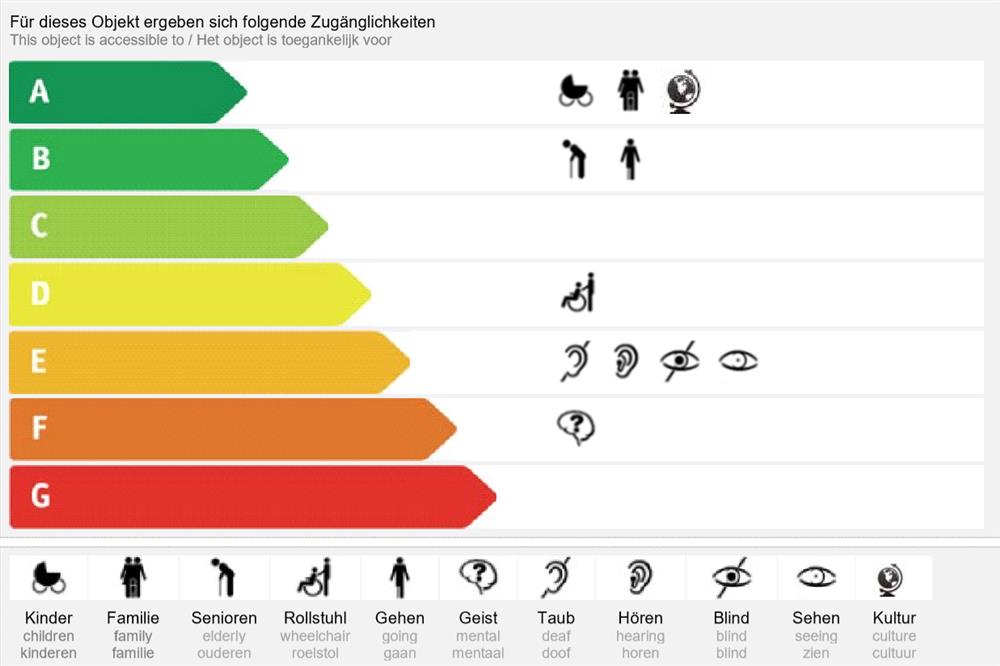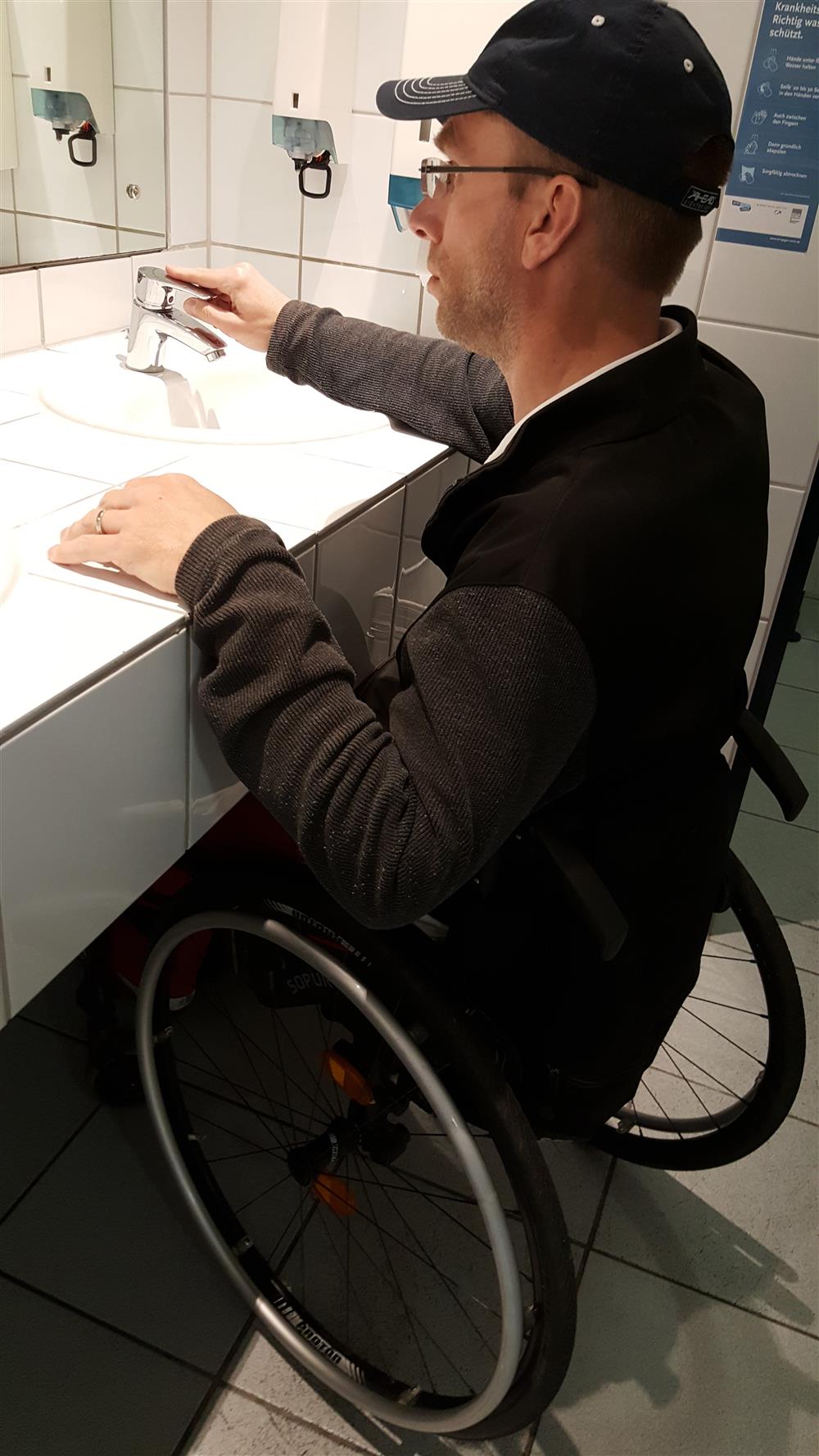Rating the accessibility of buildings using a well-known seal system
- Solution
- BPASS
- Organization
- EUKOBA - European Competence Centre for Accessibility
- Country of Implementation
- Germany
- Region
- Europe
- Subregion
- Western Europe
- Start Year
- 2016
- First published
- 31.01.2018

Solution details
People
“With BPASS, EUKOBA is at least ten years ahead of all other stakeholders in the area of accessibility.” Hans-Joachim Fuchtel, Member, German Bundestag, and Parliamentary State Secretary of the Federal Ministry of Labour and Social Affairs
EUKOBA – the European Competence Centre for Accessibility, based in the province of North Rhine-Westphalia, Germany – provides consulting, training, and education for schools, companies, municipalities, and institutions in the area of accessibility. As an independent service provider, EUKOBA has initiated BPASS, an accessibility pass for buildings that can be compared to the familiar energy pass (a broadly used seal to visualize the energy efficiency of electrical equipment, such as washing machines and refrigerators). Just like the energy pass, the BPASS uses colour scaling and a rating scale from A to G to inform people about the current level of accessibility of a building in an understandable and familiar way. Since 2016, some 30,000 persons have used the pilot app.
Problems Targeted
Many types of impairments – including hearing, visual, and learning – are often not taken into consideration when thinking about accessible design and services.
Solution, Innovation and Impact
BPASS carries out accessibility assessments of objects and public spaces based on a 300-question checklist for 11 different beneficiary groups (e.g., children, families, the elderly, persons with mobility impairments, and wheelchair users). This comprehensive approach is important because a building might be accessible for wheelchair users, but not accessible to blind people. The actual state of the building or public space is visualised with the help of a colour scheme and an alphabetical rating of A to G. In addition to German, BPASS is available in Dutch, English, French, Spanish, and Turkish. Following the assessment, each participating municipality or private building owner receives an individual recommendation for action to improve the accessibility of an object or public space. Persons using the respective buildings or spaces can find the results online or via the app.
Funding, Outlook and Transferability
BPASS is a licensed model, and in addition to Germany and the Netherlands (development partners) it is currently preparing another roll-out in Belgium and Turkey. BPASS already has a procedure in place to roll-out the online evaluation system in other countries; and it provides all new partner organizations with an adapted tool, while all background activities are operated centrally from Germany. Moreover, the new evaluators receive detailed on-site training and are introduced to all features of the system. EUKOBA has already had an influence on policy development in Turkey. Wheelchair users and persons with mobility impairments can currently use places for washing (the abdesthane) in mosques and buildings with a prayer room only partially or not at all. BPASS has designed and implemented accessibility guidelines so solve this issue. The development costs of BPASS were supported by the Federal Ministry of Labour and Social Affairs in Germany. In The Netherlands the development of the app was promoted by the Limburg province. There is an annual fee of 49.90 Euro per year/per building. BPASS has kept the fee low so as to encourage the participation of communities and building owners; and in the longer run its aim is to make the project self-sustaining.
Media
Related information
- Connections
- 2
-
Organization
- People
